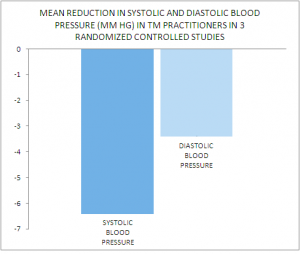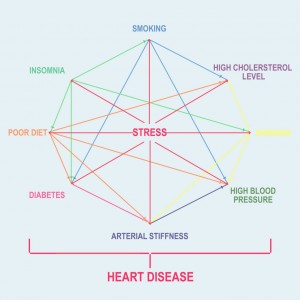Each person is unique. So are their quests and challenges in life. Yet some of the issues we face as human beings are quite universal. Here are the biggest reasons why meditate — the reasons why people decide to sit in silence and, seemingly, do nothing at all.

1. INCREASED HAPPINESS

2. IMPROVED HEALTH

3. MORE HARMONIOUS
RELATIONSHIPS

4. SUCCESS AT WORK AND
AT SCHOOL

5. BETTER SPORTS PERFORMANCE,
INCREASED FITNESS

6. SPIRITUAL AWAKENING

1. Why meditate: Be more content and happy
Scientific studies show that 90% of happiness does NOT depend on the external circumstances but on the way our brain processes whatever is going on in our life at any given moment. Quite a mind boggling statement, no?
90% of how up or down we feel is not determined by happens but what we happen to make of it in our head.
If that sounds unbelievable, let’s just think of a time we felt tired and as a consequence got irritated or unnerved by situations that were, in hindsight, not so bad at all.
Or let’s consider how someone suffering from depression can fail to find joy in things he/she used to love. It really is all in the head when it comes to processing life’s events.
So, the question is whether there is anything one can do — something real and tangible, not just quick-fix mood-making — that would help to see the glass half full rather than half empty? In fact, there is.

2. Why meditate: Enjoy better health and longer life
People can go into meditation practice either because they just want to live a long and healthy life, or because they are looking for help against a specific disease / ailment / health issue.
.
Here’s a list of some of the most common health problems where meditating has been shown to have a significant positive impact:
- High blood pressure
- Heart disease
- Obesity and other weight problems
- Insomnia
- Recovery from cancer
- HIV / AIDS
- Unhealthy addictions (e.g., alcohol, cigarettes, drugs)
- Anxiety, stress and depression (including several stress-related problems such as multiple sclerosis, allergies, asthma, gastrointestinal problems, headaches, Alzheimer’s disease, diabetes, acne, psoriasis, other skin problems, etc.)
- ADHD (Hyperactivity)
2.1. Getting blood pressure under control
 If someone is suffering from high blood pressure (hypertension), then learning Transcendental Meditation (TM) could be a wise step towards better health.
If someone is suffering from high blood pressure (hypertension), then learning Transcendental Meditation (TM) could be a wise step towards better health.
TM has been scientifically proven to reduce blood pressure in:
- people with hypertension;
- people with heart disease;
- the old and young;
- people under stress and at rest.
2.2. Strong, healthy heart
 From increasing blood pressure to raising cholesterol levels, stress is linked to heart disease in many ways. So it is actually no surprise that an effective way of relieving stress also benefits your heart.
From increasing blood pressure to raising cholesterol levels, stress is linked to heart disease in many ways. So it is actually no surprise that an effective way of relieving stress also benefits your heart.
This has been shown by several recent research studies. A calming meditation practice not only busts stress, but also:
- lowers blood pressure;
- reverses coronary atherosclerosis;
- decreases left ventricular mass index (an indicator of heart health);
- relieves symptoms of different already existing heart conditions.
2.3. Solving weight issues by simply sitting quietly
It is scientifically proven that unhealthy food is just as addictive as cocaine. No wonder that so many people struggle to lose weight or develop serious eating disorders!
In order to effectively shed pounds, the harmful “highs” of sugary/salty/starchy/fatty foods must be replaced with “healthy fixes” – healthy foods, exercise, and meditation.
This combo of good habits will help to keep the mind-body system naturally content and happy. The urge to drown the daily sorrows in a bucket of ice-cream simply vanishes of its own accord.
2.4. Kicking insomnia
Getting enough sleep is essential to feeling good inside out. But what if one is too anxious and stressed out to fall asleep in the first place?
If this is the case, giving meditation a go wouldn’t be a bad idea at all – sitting quietly before going to bed is a great, proven tool for relieving insomnia. Like other treatments for sleep problems, meditation has many side effects. Unlike sleeping pills, however, these side effects are all positive, ranging from increased work efficiency to improved relationships!
2.5. Undergoing treatment for / recovering from cancer
A person who has been diagnosed with cancer has to face not only the physical pain and discomfort that comes with the disease and the treatment, but also the mental anxiety that accompanies the difficult journey.
One of the recommended treatments for the anxiety and mood disorders that cancer patients might suffer from is the Transcendental Meditation technique.
The technique’s ability to relieve stress is bound to help the body and mind cope with the challenge of cancer. There are several moving testimonies on how this effective stress-management practice lays the foundations for getting back to full health.
2.6. Living a normal life with HIV / AIDS
A recent study showed that meditation practice clearly improves the health-related quality of life for people living with HIV.
The HIV patients who meditated also had better outcomes on measures such as stress hormone levels and T-cell count, as well as improvements in areas such as ability to be physically and socially active, pain levels, general mental health, vitality, and general health.
Scientists believe that the effect comes from meditation’s power to relieve stress. Feeling less stressed is bound to keep the immune system in a better condition.
2.7. Quitting smoking, drinking, drugs and other addictions
How is it possible to quit smoking or drugs without even intending to? How to make recovery from alcoholism easier?
The answer could lie in a practice which cuts the problem at its very root.
Usually, the real reason for picking up a cigarette or a drink is the need to relieve stress – the desire to unwind and relax.
Yet meditation is an-easy-to-learn technique that has been found to make quitting smoking and recovering from alcohol addiction much easier exactly because it relaxes your mind and body without any undesired side-effects.
2.8. Managing a stress-related health problem
Stress can both cause a medical problem and make its symptoms worse.
Finding a great stress-busting technique to complement the treatment can thus be a crucial issue for people battling with a medical condition aggravated by stress.
Meditation, for one, is exactly such a weapon against stress and anxiety. The practice has been scientifically linked to longer life, less need for medical help, and improved symptoms for many conditions.
2.9. Effective relief for ADHD
Stress is often a trigger of ADHD, and the reverse is true as well – living with ADHD tends to make a person’s day-to-day life far more stressful. Stress can also lead to insomnia and insufficient sleep, both of which worsen ADHD symptoms. And in case stress drives one to eat unhealthy foods laden with sugar and fat and unhealthy additives, hyperactivity is bound to increase.
To escape from these vicious circles, people diagnosed with ADHD need effective stress relief.
A few years ago, based on previous studies showing the effect meditating has on improving brain function and reducing stress and anxiety, two important studies were conducted with students with ADHD.
Meditation practice resulted in all-around improvement of the students’ ADHD symptoms, including:
- reduced stress and anxiety and increased happiness,
- better ability to focus on schoolwork, organize one’s work, and work independently,
- improved quality of sleep,
- normalization of social inhibition and less impulsivity.
2.10. Living a long and healthy life
We tend to think of stress as a mental thing. Yet, stress downright destroys our body in so many ways – from raising our blood pressure to damaging the DNA .
Therefore, besides healthy food and exercise, a technique to bust stress is an essential ingredient for a long and healthy life.
Meditation has been proven to effectively relieve stress. Perhaps this is the main reason why the people who are meditating regularly have been found to live longer and need less medical help along the way!

3. Why meditate: Harmonious, happy relationships
What has sitting still with eyes closed got to do with being a better co-worker, parent, or spouse? How is it possible that meditation has been found to improve relationships?
Well, the answer lies in what stress does to our brains.
Just think of a time when you came home from a hard day at work or school and got upset with a family member or a friend for some absolutely silly reason. When we are stressed out, cognitive processes that are needed for harmonious relationships – empathy, self-regulation, rational information-processing, etc – simply get shut down.
That’s why folks who invest time in efficient stress-relief by doing meditation discover that, all of a sudden, there is naturally more harmony in their interactions with others!

4. Why meditate: More success in business and at school
Contrary to a stereotypical image of a meditator as a passive, indifferent figure covered with moss in some remote mountain cave, regular meditation practice will actually lay a solid foundation for success in our daily activities. There’s accumulating scientific evidence that meditating will make one sharper, smarter and more creative. That, in turn, will have a big positive impact on your work.
4.1. Giving a boost to your work and career
Haven’t we all, at some point in our life, dreamed of improving our work effectiveness, leadership abilities, or level of creativity?
Well, it comes out that it may be possible to do all of these: scientific studies show that people meditating regularly will get better in all of the above-mentioned areas.
Because stress makes the brain switch to a survival mode, a stressed out person can no longer properly process information, exhibit good interpersonal skills, nor come up with creative ideas.
And that is exactly the reason why meditating can be so effective in making someone better at his / her job on a consistent basis, day in and day out.
4.2. Improving the academic performance
Whether we’re talking about pre-school or college, less stress means better academic results. This is true for students of all ages.
Under stress, the human brain literally turns off its higher cognitive functions – including information-processing and memory – to save energy for a primal fight-or-flight response. Hence it is no wonder that, as a top-notch tool for reducing stress, meditation is linked to considerably improved academic performance.

5. Why meditate: Excelling at sports and getting really fit
Turns out that better athletic performance may come from something quite unexpected: from sitting on your bum and doing nothing!
Studying world-class athletes’ brain activity patterns and other mental characteristics has shown that much of the athletes’ success can be attributed to high levels of brain integration, self-development, and ability to have peak experiences.
And to develop these characteristics yourself, you don’t have to break a sweat. For instance, people practicing the Transcendental Meditation technique have been shown to lead to higher brain integration, more emotional stability, and decreased anxiety — even during the performance of challenging tasks.

6. Why meditate: Steps on the way to enlightenment
Spiritual awakening or enlightenment is actually not as mystical as it may sound. The whole process could be described as seeing life for what it really is and living every moment from that understanding.
What it usually takes is to clear away the blur caused by too much stress and tension in our everyday life. As one learns to settle and calm down, the deepest levels of consciousness will start shining through in their own accord.
Step by step, one will begin to see how beautiful and blissful life really is — and then act from that understanding in his / her everyday activities. Enlightenment and deeper meaning in life are not religious or esoteric in their nature, but very practical states accessible to everyone.

This article originally appeared on TM Home at: www.tmhome.com
Sign up for the next talk nearest you on our site at: http://switzerland.tm.org/web/m/find-a-teacher

 English
English


